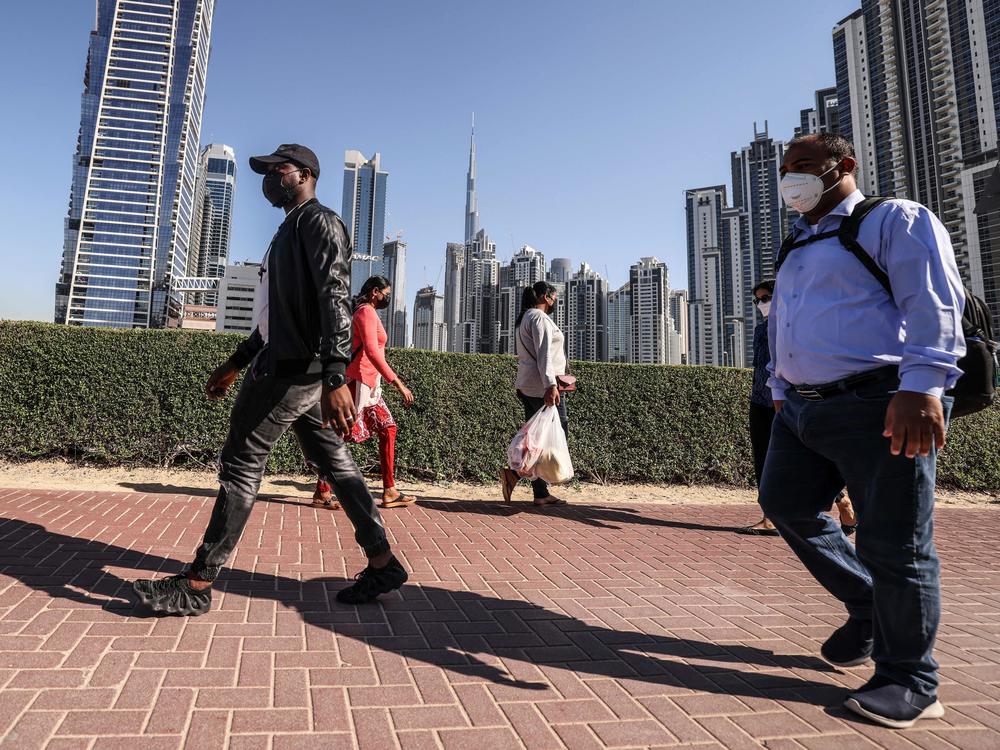Section Branding
Header Content
Why United Arab Emirates is relaxing laws on sex, marriage, liquor, vapes and more
Primary Content
The United Arab Emirates is known as a popular business destination that tends to punish those who transgress its conservative Muslim laws.
It has jailed foreigners for a kiss in public. Tourists have received years-long prison sentences for bringing products like CBD vaping oil into the country. Businesspeople have been locked away for a bounced check.
Now, experts say, the UAE wants to change its image. The country is overhauling laws that affect how it regulates a wide array of business, cultural and social norms. On paper, it makes the UAE one of the most progressive countries in the region, though critics say the reality remains much more complex.
What this means for Emiratis and foreigners living there
Most of the new laws apply to both Emiratis and foreigners. They decriminalize consensual premarital sex and allow unmarried couples to live together; they legalize alcohol consumption without a license. The reforms also toughen punishments against sexual harassment and rape and cancel the courts' leniency in dealing with so-called "honor killings."
Although recreational drug use is still a criminal offense, the laws have been eased, meaning people traveling into the country are less likely to be jailed for bringing in items like CBD.
The country now allows for civil marriage — not just marriage under Islamic law — a practice that remains unavailable in many other countries in the Middle East. And foreigners can follow their home countries' laws on some matters, such as inheritance and divorce.
And among the new financial laws, foreigners can now own businesses without Emirati partners. There are also changes to employment laws, regulating working hours.
"It truly feels like living in the thick of the history in the making," says Ludmila Yamalova, the founder and managing partner of a Dubai-based law firm. "I have never seen such an extraordinary volume of progressive legislative amendments."
Some of these changes were introduced in late 2020 as legislative amendments. Yamalova says these are now part of a new penal code implemented this month.
Why is the UAE doing this now?
By some estimates, foreigners outnumber Emiratis in the UAE by almost 9 to 1. Yamalova says some of the reforms reflect the existing reality. For example, alcohol was already available in certain places but heavily regulated. She says the changes are a recognition of how much of the population doesn't subscribe to the conservative beliefs of many Emiratis.
This is also widely seen as an attempt by the UAE to burnish its international image as it competes with Saudi Arabia to attract foreign investors and remain a leading international financial hub for the region. Last year, Saudi Arabia warned multinational companies that they could lose lucrative government contracts if they didn't relocate to Riyadh.
The leadership announced the legislative overhaul to coincide with the 50th anniversary of the UAE's founding, which it is celebrating from last year until April.
The UAE has also shifted to a Monday-to-Friday workweek — as opposed to following the Sunday-to-Thursday schedule that's commonplace in many Muslim countries — to better fit with global markets.
Habib Al Mulla, the executive chairman of a Dubai law firm, who has previously held Emirati government positions and helped draft financial legislation, says becoming more socially liberal is a necessary part of being an international economic hub.
"It's all intertwined. I believe you can't have a country which is liberal from an economic perspective but not from a social perspective. Or vice versa. It all reflects — they are like mirrors," he says. "When you are more open in your business environment, you'll be more open in a social environment."
How far-reaching are these changes in practice?
Kristian Ulrichsen, a UAE expert and analyst at Rice University's Baker Institute for Public Policy, says a key question is how evenly the new laws will be enforced, especially in the more conservative of the UAE's seven emirates. For some of the social laws, he says, "we may not know until two or three years from now whether there's been real change."
Already there are signs that one of the more publicized legal changes — the decriminalization of births outside of marriage — is not being evenly implemented. And Yamalova says the language in the new law relating to children born out of wedlock "does definitely require a lot more interpretation" than the original amendment announced in 2020.
New labor laws could in theory improve rights for migrant workers who for years have worked in the UAE with minimal protections, often housed in appalling conditions. But much of that depends on how these laws will be enforced — something that experts say remains far from clear.
Critics point out the new legislation also does not address the country's widely documented problems of state repression, abuse of detainees and trial violations.
Copyright 2022 NPR. To see more, visit https://www.npr.org.


